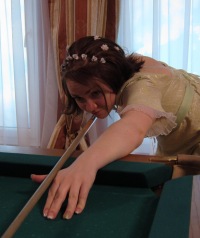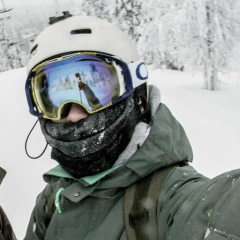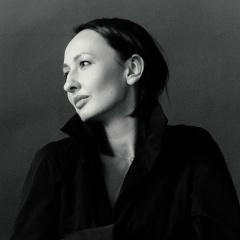Воспитание – это не подавление, а возвышение желаний
Отрывок из книги Симона Соловейчика «Педагогика для всех».
Человек часто поступает по необъяснимому капризу, но каприз этот, своевольность, так дорог ему, что он не променяет его на самую благоустроенную жизнь, где будет что угодно душе, но не будет у человека права на своеволие.
И вот эти «хочу», «не хочу» – самые возмутительные для воспитателей. Их ответ: «Мало ли чего ты хочешь!» Только в жизни человека «хочу» и «не хочу» играют роль куда более значительную, чем принято считать в педагогике.
Можно с важным видом повторять, что нельзя потакать капризам. Можно горячиться: «Да что же это получится, если каждый…» Можно и заклеймить здесь, на бумаге, любую «выламывающуюся» личность. На бумаге-то педагогика – самая легкая из наук: нельзя – и точка. Нехорошо. Некрасиво.
Но педагогика как детектив. С детьми то и дело случаются всякие «вдруг». Вдруг вырвалось, вдруг сказал почему-то, вдруг подумал, вдруг сделал что-то, о чем всю жизнь придется вспоминать со стыдом. Здесь, здесь рушатся все наши прекрасные построения! Разумеется, можно упереться в то, что в основном поведение людей осмысленно и предсказуемо, что неясные и дурные желания появляются редко, что в том-то и состоит задача педагогики, чтобы научить ребенка бороться с ними. Но и после таких призывов и объяснений природа человека останется такою же.
Шестилетний ребенок проходил мимо чужой квартиры, увидел, что в двери торчит ключ, повернул его, запер дверь, а ключ унес во двор и зарыл в снегу – скандал вышел ужасный. Хорошо, что мальчик признался, и хорошо, что отыскал ключ. «Ну почему ты это сделал?» Он не может объяснить. И никакой мальчик не может объяснить, почему он взял чужое, ударил товарища, ущипнул, толкнул, обозвал, почему он не стал делать уроков, показал соседке по парте язык – откуда он знает, почему? И какие мудрецы ответили бы?
Пока мы обходим это «вдруг», воспитание остается бессильным. Повторяя без конца: не понимают, надо разъяснить, надо научить, надо приучить, надо потребовать, надо, чтобы понял, надо заставить, надо контролировать – прибегая к этим привычным педагогическим оборотам речи, мысли и действия, мы незаметно для себя проскакиваем мимо чего-то очень серьезного.
Дело в том, что на самом деле человек не «подчиняется требованиям», не «адаптируется», не «обуздывает свои дурные желания» под давлением социальных норм – а в нем самом живут собственные его стремления к доброму, правдивому и красивому. У него есть дух.
Духовное стремление, а не изнурительная борьба с собственными низменными страстями помогает нам расти. Не запрет на дурное, налагаемый обществом, руководит нами, а собственное стремление к добру, правде и красоте. И в душе человеческой не мысль с желанием встречаются, а желание с желанием.
Потому-то воспитание – это не подавление, а возвышение желаний.
Отрывок из книги Симона Соловейчика «Педагогика для всех».
Человек часто поступает по необъяснимому капризу, но каприз этот, своевольность, так дорог ему, что он не променяет его на самую благоустроенную жизнь, где будет что угодно душе, но не будет у человека права на своеволие.
И вот эти «хочу», «не хочу» – самые возмутительные для воспитателей. Их ответ: «Мало ли чего ты хочешь!» Только в жизни человека «хочу» и «не хочу» играют роль куда более значительную, чем принято считать в педагогике.
Можно с важным видом повторять, что нельзя потакать капризам. Можно горячиться: «Да что же это получится, если каждый…» Можно и заклеймить здесь, на бумаге, любую «выламывающуюся» личность. На бумаге-то педагогика – самая легкая из наук: нельзя – и точка. Нехорошо. Некрасиво.
Но педагогика как детектив. С детьми то и дело случаются всякие «вдруг». Вдруг вырвалось, вдруг сказал почему-то, вдруг подумал, вдруг сделал что-то, о чем всю жизнь придется вспоминать со стыдом. Здесь, здесь рушатся все наши прекрасные построения! Разумеется, можно упереться в то, что в основном поведение людей осмысленно и предсказуемо, что неясные и дурные желания появляются редко, что в том-то и состоит задача педагогики, чтобы научить ребенка бороться с ними. Но и после таких призывов и объяснений природа человека останется такою же.
Шестилетний ребенок проходил мимо чужой квартиры, увидел, что в двери торчит ключ, повернул его, запер дверь, а ключ унес во двор и зарыл в снегу – скандал вышел ужасный. Хорошо, что мальчик признался, и хорошо, что отыскал ключ. «Ну почему ты это сделал?» Он не может объяснить. И никакой мальчик не может объяснить, почему он взял чужое, ударил товарища, ущипнул, толкнул, обозвал, почему он не стал делать уроков, показал соседке по парте язык – откуда он знает, почему? И какие мудрецы ответили бы?
Пока мы обходим это «вдруг», воспитание остается бессильным. Повторяя без конца: не понимают, надо разъяснить, надо научить, надо приучить, надо потребовать, надо, чтобы понял, надо заставить, надо контролировать – прибегая к этим привычным педагогическим оборотам речи, мысли и действия, мы незаметно для себя проскакиваем мимо чего-то очень серьезного.
Дело в том, что на самом деле человек не «подчиняется требованиям», не «адаптируется», не «обуздывает свои дурные желания» под давлением социальных норм – а в нем самом живут собственные его стремления к доброму, правдивому и красивому. У него есть дух.
Духовное стремление, а не изнурительная борьба с собственными низменными страстями помогает нам расти. Не запрет на дурное, налагаемый обществом, руководит нами, а собственное стремление к добру, правде и красоте. И в душе человеческой не мысль с желанием встречаются, а желание с желанием.
Потому-то воспитание – это не подавление, а возвышение желаний.
Education is not suppression, but exaltation of desires
Excerpt from the book of Simon Soloveitchik "Pedagogy for all."
A person often acts on an inexplicable whim, but this whim, self-will, is so dear to him that he will not exchange it for the most comfortable life, where anything will be to the soul, but the person will not have the right to self-will.
And these “I want”, “I don't want” are the most outrageous for educators. Their answer: “What do you want!” Only in human life do “want” and “do not want” play a much more significant role than is commonly believed in pedagogy.
You can repeat with an important look that you can not indulge whims. You can get excited: "Well, what does it happen if everyone ..." You can brand here, on paper, any "breakaway" personality. On paper, pedagogy is the easiest of the sciences: it’s impossible - that’s the point. Not good. Ugly.
But pedagogy is like a detective. Every now and then, all sorts of things happen to children “suddenly”. Suddenly burst out, suddenly said for some reason, suddenly thought, suddenly did something that all his life will have to remember with shame. Here, here all our beautiful constructions are collapsing! Of course, one can rest in the fact that basically the behavior of people is meaningful and predictable, that vague and evil desires rarely appear, and that is precisely what pedagogy is about to teach the child how to deal with them. But even after such appeals and explanations, human nature will remain the same.
A six-year-old child passed by someone else’s apartment, saw a key sticking out in the door, turned it, locked the door, and carried the key into the yard and buried it in the snow - the scandal came out terrible. It’s good that the boy confessed, and it’s good that he found the key. "Well, why did you do this?" He cannot explain. And no boy can explain why he took someone else’s, hit a friend, pinched, pushed, called, why he didn’t do his homework, showed his language to his neighbor on the desk - how does he know why? And which sages would answer?
As long as we go around this “all of a sudden”, upbringing remains powerless. Repeating endlessly: they don’t understand, they need to clarify, they need to be taught, they must be taught, they must be demanding, they must be understood, they must be forced, they must be controlled - resorting to these usual pedagogical turns of speech, thought and action, we slip past something unnoticed something very serious.
The fact is that, in fact, a person does not “obey the requirements”, does not “adapt”, does not “curb his evil desires” under the pressure of social norms - and his own aspirations for good, truthful and beautiful live in him. He has a spirit.
Spiritual aspiration, not an exhausting struggle with our own base passions, helps us grow. It is not the ban on evil imposed by society that rules us, but our own desire for good, truth and beauty. And in the human soul it is not thought that meets desire, but desire with desire.
Therefore, upbringing is not suppression, but exaltation of desires.
Excerpt from the book of Simon Soloveitchik "Pedagogy for all."
A person often acts on an inexplicable whim, but this whim, self-will, is so dear to him that he will not exchange it for the most comfortable life, where anything will be to the soul, but the person will not have the right to self-will.
And these “I want”, “I don't want” are the most outrageous for educators. Their answer: “What do you want!” Only in human life do “want” and “do not want” play a much more significant role than is commonly believed in pedagogy.
You can repeat with an important look that you can not indulge whims. You can get excited: "Well, what does it happen if everyone ..." You can brand here, on paper, any "breakaway" personality. On paper, pedagogy is the easiest of the sciences: it’s impossible - that’s the point. Not good. Ugly.
But pedagogy is like a detective. Every now and then, all sorts of things happen to children “suddenly”. Suddenly burst out, suddenly said for some reason, suddenly thought, suddenly did something that all his life will have to remember with shame. Here, here all our beautiful constructions are collapsing! Of course, one can rest in the fact that basically the behavior of people is meaningful and predictable, that vague and evil desires rarely appear, and that is precisely what pedagogy is about to teach the child how to deal with them. But even after such appeals and explanations, human nature will remain the same.
A six-year-old child passed by someone else’s apartment, saw a key sticking out in the door, turned it, locked the door, and carried the key into the yard and buried it in the snow - the scandal came out terrible. It’s good that the boy confessed, and it’s good that he found the key. "Well, why did you do this?" He cannot explain. And no boy can explain why he took someone else’s, hit a friend, pinched, pushed, called, why he didn’t do his homework, showed his language to his neighbor on the desk - how does he know why? And which sages would answer?
As long as we go around this “all of a sudden”, upbringing remains powerless. Repeating endlessly: they don’t understand, they need to clarify, they need to be taught, they must be taught, they must be demanding, they must be understood, they must be forced, they must be controlled - resorting to these usual pedagogical turns of speech, thought and action, we slip past something unnoticed something very serious.
The fact is that, in fact, a person does not “obey the requirements”, does not “adapt”, does not “curb his evil desires” under the pressure of social norms - and his own aspirations for good, truthful and beautiful live in him. He has a spirit.
Spiritual aspiration, not an exhausting struggle with our own base passions, helps us grow. It is not the ban on evil imposed by society that rules us, but our own desire for good, truth and beauty. And in the human soul it is not thought that meets desire, but desire with desire.
Therefore, upbringing is not suppression, but exaltation of desires.
У записи 5 лайков,
1 репостов.
1 репостов.
Эту запись оставил(а) на своей стене Инна Ахременко

























